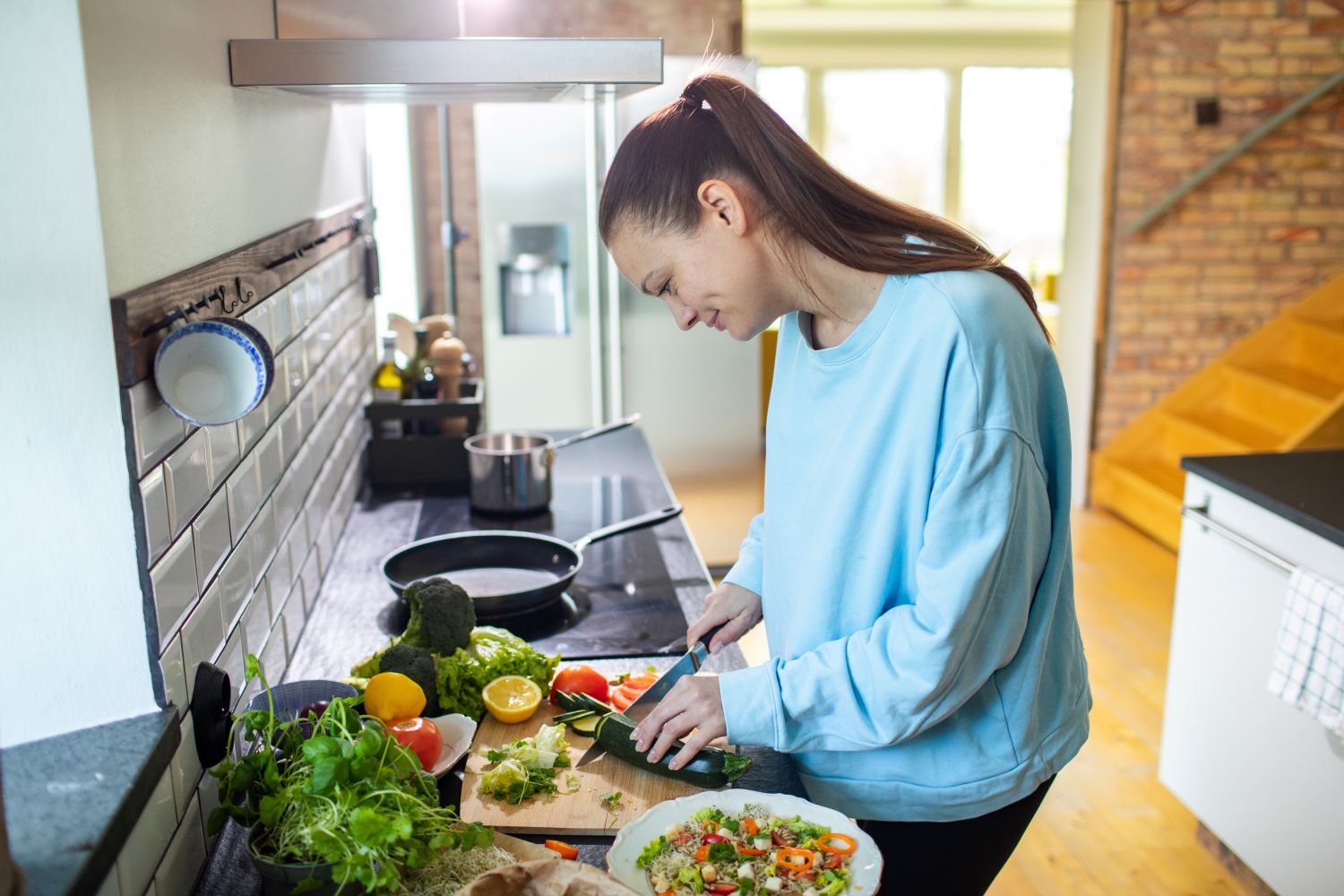 Add My Company
Add My Company
You Are What You Eat, 2024

You are what you eat, or so the old saying goes. After the over-indulgences of Christmas, many of us will be looking into how to eat healthy foods as a New Year's resolution.
With 43% of Brits set to change their diet in 2024 to become healthier and fitter, the spotlight is firmly on feeling good following the festive feasting.
Health-related resolutions are extremely popular in the New Year, with 53% of people aiming to exercise more and 43% wishing to lose weight, according to a poll by Statista.
© Baba.Images / Shutterstock.com
You can become a healthier and fitter person by changing your diet and taking more exercise. It really is that simple.
Post-Christmas blues
Many people feel at their worst in January, after over-indulging during the festive period.
Plates overloaded with turkey, roast potatoes and all the trimmings, buttery rolls with leftovers, Christmas pudding, trifle, mince pies and sugary desserts all impact how we feel in the New Year.
No-one is suggesting you don’t enjoy yourself over Christmas! Registered dietitian Grace Derocha, spokesperson for the Academy of Nutrition and Dietetics, says festive food is far more than just calories. Christmas dining is about having fun with family and friends, making social connections and memories. She says don’t deny yourself a good time - enjoy it while it lasts.
However, don’t let the festive frolics spill over into the New Year - when the over-eating should stop!
The average person gains around 2lb in weight over Christmas, according to a report in the Journal of Obesity.
While this doesn’t seem a lot in itself, problems arise when the weight gain continues after the holidays. Then, we repeat it year after year. Within five years, a couple of pounds has turned into 10lbs, and it becomes harder to shift as we age.
The festive period is the biggest contributory factor in annual excess weight gain. People who are already overweight tend to put on more pounds over Christmas than those who are at a healthy weight, according to the Academy of Nutrition and Dietetics.
Benefits of becoming healthier
There are both physical and mental benefits to becoming healthier. It keeps teeth, skin and eyes in good shape and boosts the immune system, as well as supporting muscles and strengthening bones.
A healthy diet reduces the risk of Type 2 diabetes, some cancers and heart disease. It helps the digestive system to function properly and supports a healthier pregnancy.
Eating properly helps us to achieve our ideal weight, while keeping in generally good health and avoiding obesity may help us to live longer.
In terms of mental health, getting fitter and keeping our weight down is likely to have a positive impact.
Eating a diet rich in nutrients can improve your ability to focus and reduce mood swings, according to studies. A diet comprising unprocessed whole foods can also help alleviate the symptoms of anxiety and depression.
You can have greater confidence and self-esteem in the long run if you stick to your resolution to eat healthier.
What is a good diet for losing weight?
In general, choose healthier, cleaner options whenever possible. You don’t have to skip the foods you love, as this feels like denial. It can make it harder to stick to a healthier diet if you’re craving certain meals.
However, rather than lashing butter onto mashed potatoes, or adding heavy sauces and thick gravy to meals, choose plenty of vegetables and eat grilled, baked or raw versions of dishes you like.
Eat lean meats rather than fatty roasts and always choose grilled over fried foods. Don’t give up your favourite foods altogether - just modify them into a healthier version.
Never skip breakfast, as this will slow down your metabolism and also make you feel hungrier later on, so you’ll tend to eat too much for lunch to compensate.
A healthy breakfast includes yogurt, whole-grain cereal, fruit and low-fat milk, for example.
Drink fewer fizzy and sweetened drinks, as the calories can soon add up. Water is good for you, as it’s a pure drink and not calorie laden. Mix fruit juice with water to reduce the amount of sugar you’re consuming.
Eat a minimum of five portions of fruits and vegetables per day and keep a stock of them in the fridge, ready to eat. When you’re hungry, convenience makes you grab the nearest snack, so make sure it’s not cakes or biscuits.
Take a packed lunch to work, such as mixed vegetables seasoned with black pepper, lemon juice, herbs or a balsamic vinegar dressing. Make it something simple that you can heat in the microwave.
Reduce your fat intake in general and put more protein in your diet. Pack some healthy snacks such as string cheese, hummus, yogurt, raw veggies and dip. You will also save money by taking a packed lunch to work.
Make a salad more interesting by adding whole grains to increase the fibre content.
Cook pasta with vegetables and lean protein such as tuna, chicken breast or vegetarian alternatives. This helps to fill you up without eating too much pasta, which has a high carbohydrate content.
How to meal prep
Meal prep is a great way to plan out your meals without using too much of your time - especially useful for people with a hectic life, who are on the move a lot and find it hard to stick to a diet.
Meal prepping means preparing complete meals, or specific dishes that you enjoy, in advance and often in bulk. You can prepare an entire dish in one go or put together key elements of the recipe to freeze and use later. Not only does this save time, but it also means you have a supply of tasty, nutritional meals ready to enjoy, rather than choosing an unhealthy snack or takeaway for convenience.
Working out a meal plan is the key to success. There’s no excuse for not eating healthily if you’ve set aside an afternoon to prepare a whole selection of nutritional meals that you can simply pop in the microwave for a few minutes.
Food storage is very important when it comes to planning ahead. When you’re working towards goals and targets, it’s a massive boost to have delicious meals packed away in food storage containers so they come out as fresh as when you put them there.
In order to stay motivated, especially during the early stages of becoming healthier, give yourself a reward every now and again. This doesn’t mean having a full chippy tea delivered to your doorstep - but you can certainly have the odd little treat if you fancy something different. Going completely “cold turkey” might be too much to bear!
Think of the phrase, “New year, new you,” and keep in mind the reason you’re embarking on a healthy eating plan. Remember, sensible lifestyle choices rather than fads and crash diets!
For more information on You Are What You Eat, 2024 talk to Solent Plastics

